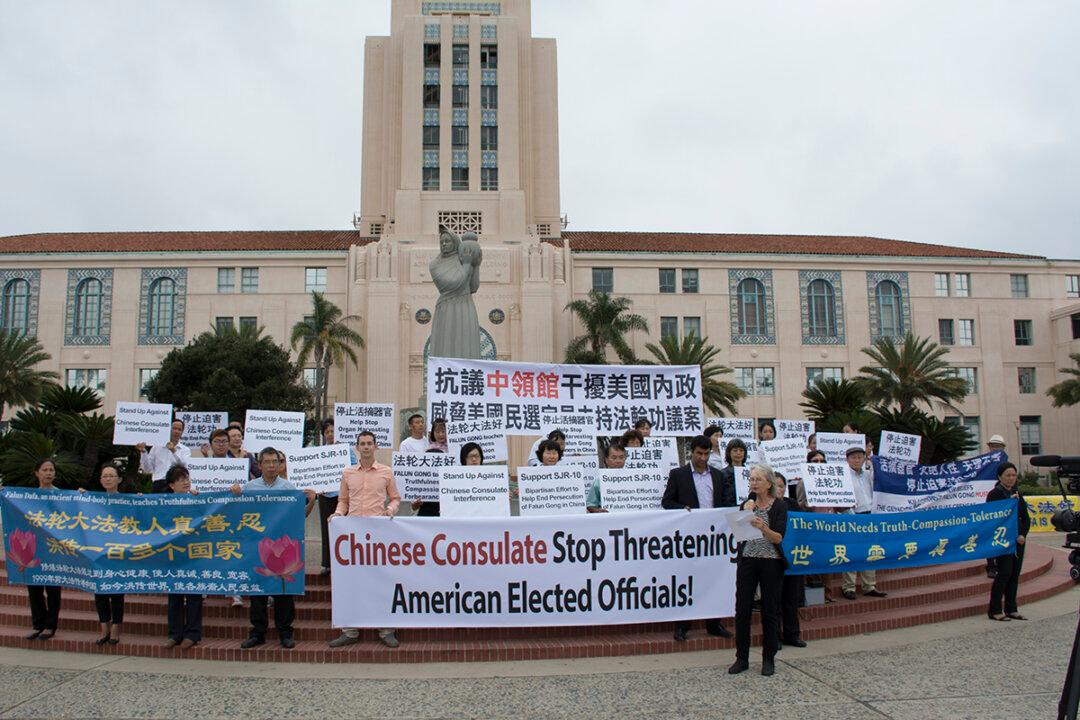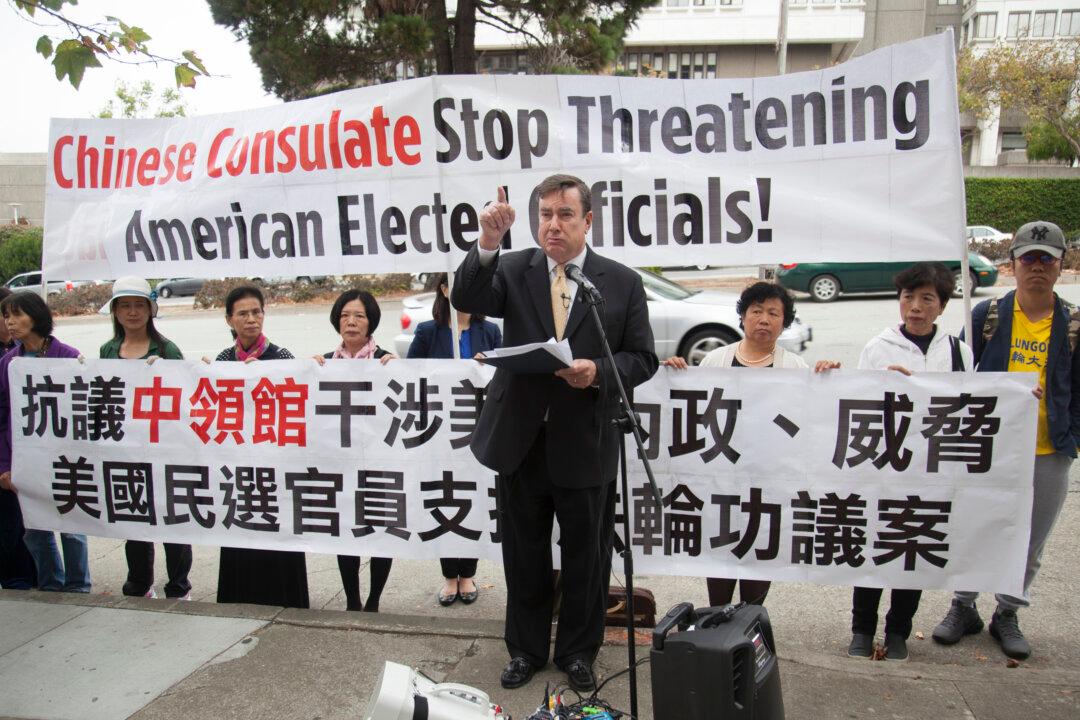SACRAMENTO, Calif.—During the last, hectic week of the California legislature’s session, from Sept. 11 to 15, practitioners of Falun Gong sat in the Senate gallery as silent witnesses to the proceedings below.
They wanted with their presence to challenge the consciences of the senators, to remind them that on the other side of the world terrible human rights abuses were taking place, and the senators had the opportunity to condemn those crimes.



